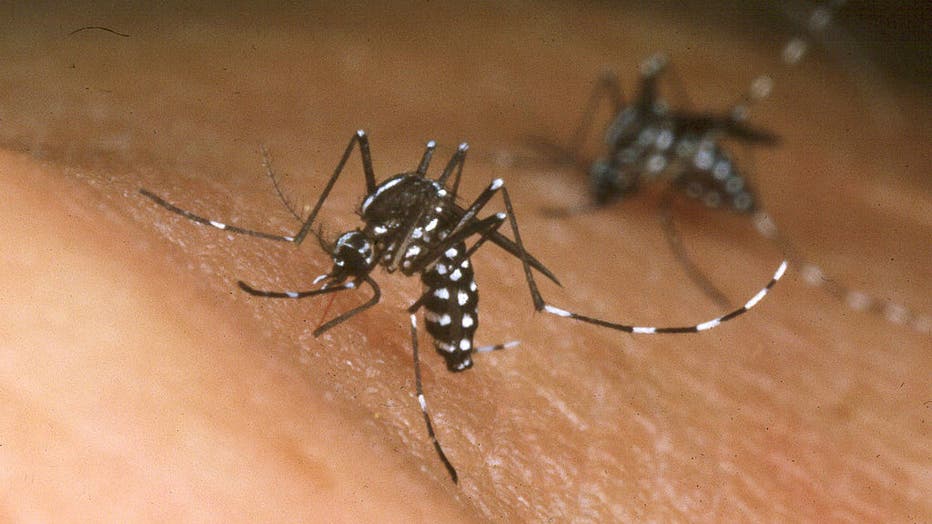West Nile virus in NYC: Locations of infected mosquitoes
Joro spiders heading to New York
If you thought spotted lanternflies were bad, there's a new pest headed our way called the joro spider. They can grow as large as eight inches, but as FOX 5 NY’s Teresa Priolo explains we don’t need to be too concerned.
NEW YORK - Mosquitoes with West Nile virus have been spotted in all five boroughs of New York City, according to city health officials.
This year marks the virus’ 25th consecutive year in the city.
While West Nile typically peaks during August, positive mosquitoes have been identified.
West Nile in NYC
West Nile Virus returns to NYC
The West Nile Virus has returned to New York City for another year, with health officials reporting that a record number of mosquitoes are infected with the virus.
In the last two weeks, the virus, which has no cure, has been spotted in nearly 70 zip codes across the city.
According to the NYC Department of Health’s tracker, no positive cases in humans have been reported yet.
In 2023, the health department reported that three people living in the city tested positive for the virus, two from Queens and one from Manhattan.
Featured
What to do if a flying Joro spider bites you
These large, long-legged spiders are not considered to be aggressive, however, they are venomous.
All three people were hospitalized.
Although mosquitoes are most active in New York City from May through October, the DOH conducts surveillance on the pests year-round.

An Asian Tiger mosquito feeds from the blood from a person in an undated photo.
Half of all the reported findings were in Queens with 12 in Mahattan. Health officials expect cases are only expected to rise heading into the rest of the mosquito season.
City officials say that the lack of detection of West Nile virus in a ZIP code does not mean that West Nile virus is absent.
To track the latest location of the infected mosquitoes, see the NYC Department of Health’s tracker.
West Nile mosquito bite
Most people infected with West Nile virus have no symptoms at all or develop fever and other symptoms including headache, muscle aches, rash and extreme fatigue.

According to the DOH, nearly 15% of cases in the city are fatal, with an average of 17 people being diagnosed with the virus each year.
West Nile symptoms
According to the NYC Department of Health, most people infected with West Nile do not develop any symptoms.
For those who do become ill, symptoms usually appear between three and 15 days after you are bitten by an infected mosquito.
Mild to Moderate Illness
Some people experience a mild to moderate illness. Symptoms include:
- Fever
- Headache
- Tiredness/weakness
- Body aches and joint pain
- Vomiting
- Diarrhea
- Rash
Severe Illness
In rare cases, West Nile can cause a severe illness that can affect the brain and spinal cord. This can lead to encephalitis, meningitis or acute flaccid paralysis, which is a polio-like syndrome where muscles become weak or paralyzed.
Symptoms of this illness include:
- High fever
- Headache
- Neck stiffness
- Muscle weakness
- Tremors or shakes
- Confusion
- Numbness and paralysis
- Coma
How to prevent mosquitoes
While the Health Department's surveillance efforts are able to confirm evidence of West Nile virus in mosquitoes in the above-mentioned areas, New Yorkers are advised to report mosquito activity.
Residents can help reduce the risk of West Nile virus by eliminating areas of standing water and by taking precautions against mosquitoes.


